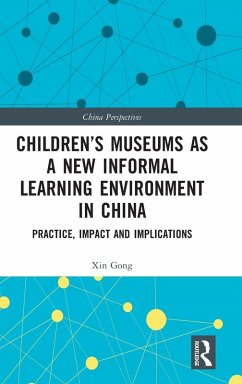Based on solid theoretical and empirical analyses, this book provides a first and fresh introduction to the recent development of children's museums in China, along with their educational and social impacts as an informal learning environment for children, families, and society in general.
To understand the benefits of children's museums and in providing stimulating, informal education to children, the book looks into the origin and historical development of these institutions and how they have been influenced by informal learning theory, museum education, and early childhood education while providing case studies of children's museums in China and the learning that takes place in them. This research analyses the process of informal learning and provides guidance on ways of elevating children's cognitive and noncognitive development in the informal space.
Different stakeholders of children's museums, including parents and educators, practitioners and designers, researchers of informal education, early childhood education, and policy makers will benefit from the insights provided in this book.
To understand the benefits of children's museums and in providing stimulating, informal education to children, the book looks into the origin and historical development of these institutions and how they have been influenced by informal learning theory, museum education, and early childhood education while providing case studies of children's museums in China and the learning that takes place in them. This research analyses the process of informal learning and provides guidance on ways of elevating children's cognitive and noncognitive development in the informal space.
Different stakeholders of children's museums, including parents and educators, practitioners and designers, researchers of informal education, early childhood education, and policy makers will benefit from the insights provided in this book.

